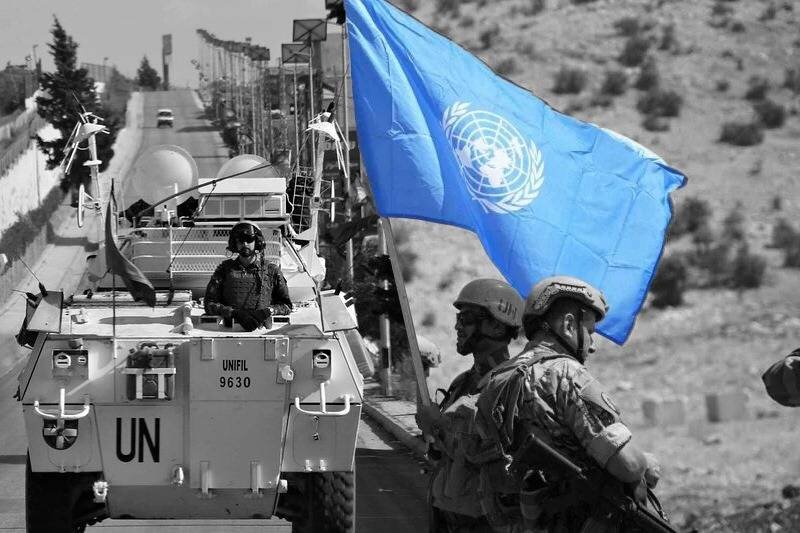Will UNIFIL be replaced by a multinational force under umbrella of a ceasefire supervision committee

SOUTH LEBANON — Israel Hayom writes that the U.S. administration has informed its international partners of its unwillingness to renew the mandate of the United Nations Interim Force in Lebanon (UNIFIL), which is expected to be approved at the end of August.
For its part, the Jerusalem Post explained that UN diplomats expect Washington to face French opposition if it formally proposes ending UNIFIL’s mandate, which has been in operation since 1978, during the upcoming Security Council vote.
Annually, the renewal of UNIFIL’s mandate coincides with the debate over the role of these forces in the south.
Over the past two years, particularly following the September-November U.S.-led Israeli war against Lebanon, during which the enemy deliberately or unintentionally targeted UNIFIL positions, patrols, and installations, the debate has changed dramatically.
Constantly, UNIFIL has been targeted by the Israeli enemy, the most notable of which was the bombardment of the UN headquarters in the southern town of Qana during the 1996 aggression.
In June 2022, the Israel Occupation Force’s navy also surrounded UNIFIL’s Indonesian ship, launching a radar attack on it by six warplanes and a Sa’ar 4.5 corvette; any technical error could have turned the incident into a disaster for the Indonesian soldiers then.
This year, the renewal of UNIFIL coincides with strong Israeli objections to the continued presence of these forces, while countries (specifically the five permanent members of the Security Council) are concerned with the situation in Lebanon.
Washington supports the position of the Israeli occupation regime, while Paris insists on keeping these forces.
France traditionally drafts the renewal proposal in May of each year. This year, it drafted the text almost identically to the formula used to renew the mandate last year, which sparked widespread objections due to its deletion of phrases such as “with the approval of the Lebanese Army” and “granting UNIFIL forces freedom of movement.”
Upon her visit to the occupied Palestinian territories, the UN Secretary-General’s Special Representative, Jeanine Hennis-Plasschaert, heard the displeasure of enemy officials regarding her recent meeting with Hezbollah’s security and liaison officer, Wafiq Safa.
The Israeli colonial regime has long claimed that the UNIFIL “covers up” Hezbollah’s freedom of movement in the south of the Litani River and its establishment of camps and weapons depots just meters from its headquarters.
Meanwhile, Beirut awaits the American position, which will be presented by Trump’s Deputy Special Envoy to West Asia, Morgan Ortagus, or her successor, regarding the proposal to modify UNIFIL’s mandate, reduce its personnel, or halt its funding.
During his meeting with Finnish Foreign Minister Elina Valtonen, President Joseph Aoun affirmed Lebanon’s commitment to maintaining UNIFIL in the south, “given the important role it plays alongside the Lebanese Army in maintaining security and stability in the region and implementing Resolution 1701.”
Beirut has been advised by Paris to refrain from continuing UNIFIL's traditional missions. Instead, it is suggested that the powers of UNIFIL be expanded by granting the force the freedom to operate without a Lebanese Army escort, while still permitting it to carry out various missions.
Lebanon relies on France for the issue of UNIFIL’s budget and its renewal. Sources say that serious discussions are underway in this regard with the concerned countries, particularly China and Italy (whose troop numbers are the largest—1,098).
As for UNIFIL, it has proposed that if its forces are reduced, their equipment be reinforced with modern technological means, such as drones and surveillance towers.
Washington is trying to enforce its blackmailing terms, most notably modifying the UNIFIL’s mandate from operating under Chapter VI to Chapter VII of the UN Charter, which grants it the authority to use force whenever necessary rather than its oversight role, as well as allow it to invade towns at any time without coordination with the Lebanese Army.
Hence, the United States may extend UNIFIL’s mandate, for a final period of six months to two years, with the Lebanese Army completing its deployment in the south and north of the Litani River.
As the renewal deadline for the UNIFIL force in southern Lebanon approaches, external and internal pressures mount, with a difference that Israel has established a buffer zone on the borders with the northern Palestinian territories to prevent the residents from returning to their lands and homes.
